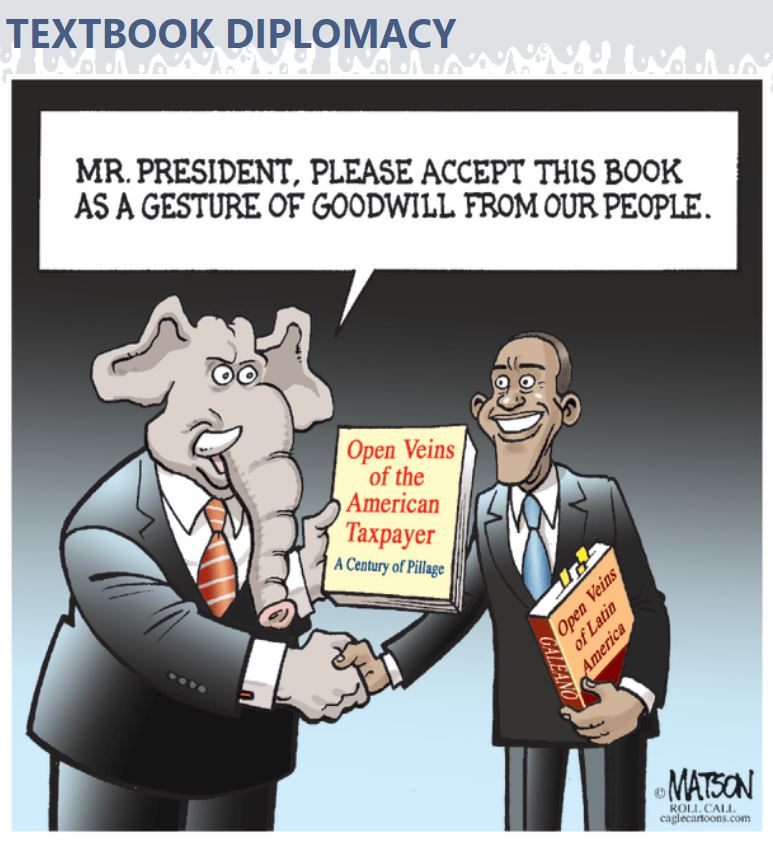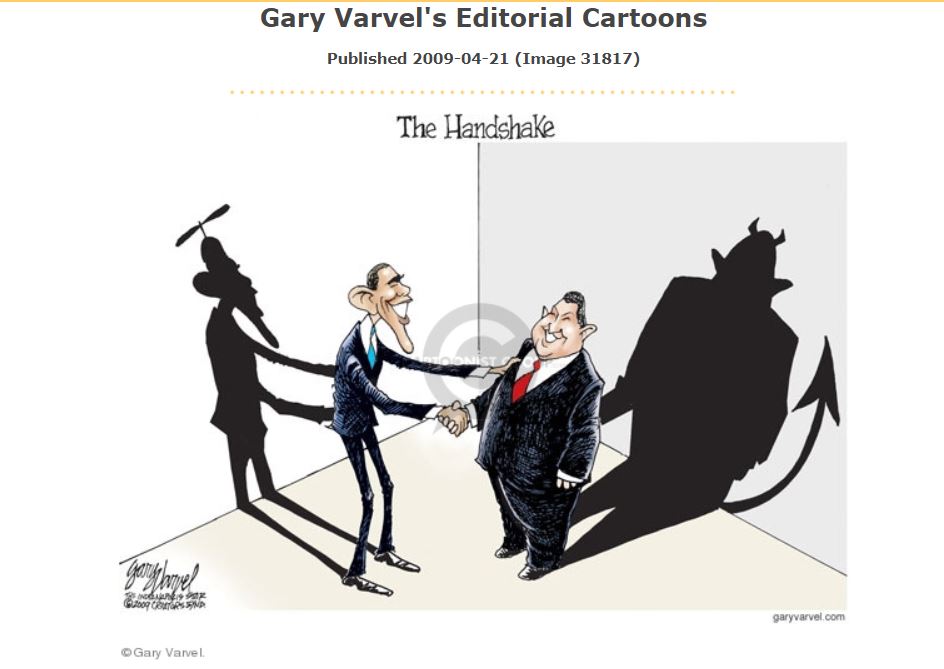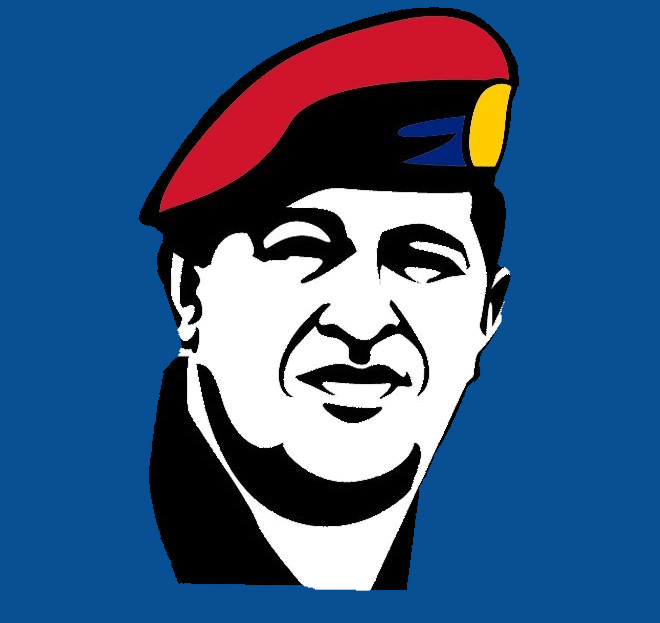Influence
Policy
The ultimate goal of U.S. policy toward Venezuela was to mold a country that could serve as a satisfactory ally in promoting American interests. How this could be accomplished was through neocolonialism, influence, and imperialist policies. These neocolonialist policies and influences were facilitated by the asymmetry of power and discourse described by Michel Foucault. The unbalanced power of the U.S. military, economy, and discourse could force the Venezuelan government to capitulate the American influence. This development began with democracy promotion in which U.S. policymakers endeavored to export their governing systems and impose it on Venezuela. Democracy promotion was sold to the American people as a moral imperative—the duty of the U.S. superpower to bring other countries closer to its own perceived greatness. Importantly, it was also a means for the U.S. to advance the removal of its adversary, Hugo Chavez, from power under the guise of being a democratic savior.
Anti-Americanism
Any resistance of American influence and democracy promotion efforts by Chavez and his supporters were decried by U.S. leaders as anti-American. Even specific attacks by Chavez against figures such as President Bush and President Obama were roundly criticized as a broadly anti-American sentiment. Chavez challenging the dominance and sacrosanctity of the U.S. was fodder for American officials to exert even greater influence on Venezuela to attempt to keep it in line.
Economic Influence: Monroe Doctrine
In the vein of Foucault’s description of the asymmetry of power and discourse, U.S. officials maintained the views of the Monroe Doctrine and its more modern corollaries that the Western Hemisphere was under the purview of the United States. Such a policy gives the U.S. immense power over the natural resources, human capital, and political strength of the region. Any attempt by a foreign power to gain influence in the hemisphere or for a country within the Americas to challenge the U.S.’ dominance would not be tolerated. Thus, U.S. policy punished Venezuela for coordinating its interests with foreign powers, particularly American adversaries such as Russia, China, and Iran. Additionally, any perceived attempts by Hugo Chavez to challenge American hegemony in the hemisphere were met with swift reprisal from U.S. policymakers.
Political Cartoons
The discussion on influence in the political cartoons is mainly in two realms: Pat Robertson’s call for Chavez’s assassination and the influence Chavez has over Obama. Pat Robertson’s proposal for the assassination is depicted by him giving speeches and the American people viewing The 700 Club on television. Robertson’s influence is portrayed in the political cartoons by American people believing that the perils of assassination are coming from terrorist groups, such as Al Qaeda. The American people are ignorant about where the threats are from, falsely assuming it is an outside force. This plays directly into Said’s theory of the “us” versus “them” mentality that comes with an understanding of orientalism. The East is the other, and thus is seen as irrational and violent. Because of this, there will be an overarching stereotype about who a terrorist would be, which will never be an American in this case.
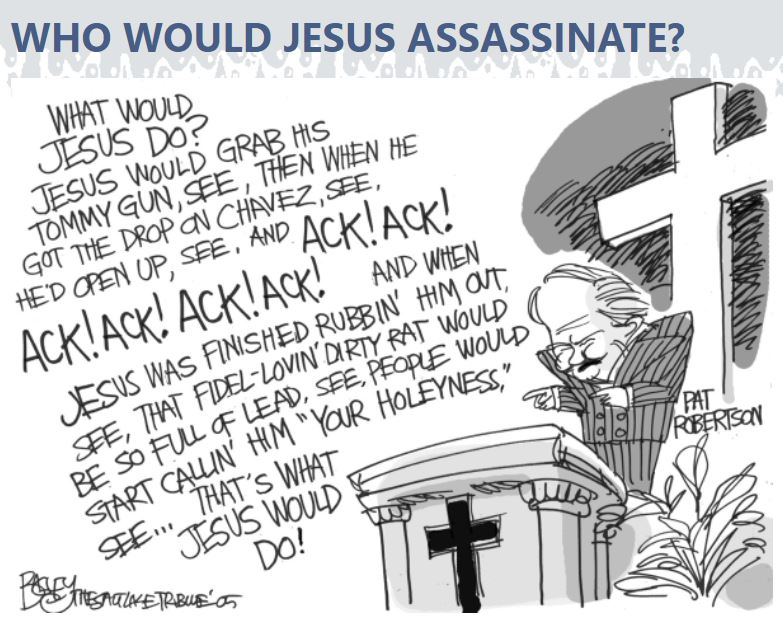
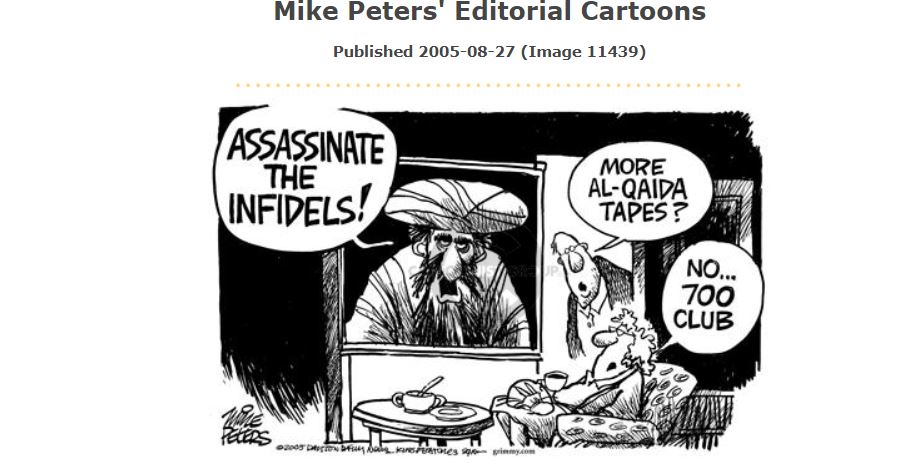
The influence that Chavez has over Obama is depicted through two main events: a handshake between the two and Chavez giving Obama a book titled, “Open Veins of Latin America: Five Centuries of the Pillage of a Continent.” Both of these events, which happened at the same conference, paint Obama as stupid and easily manipulated by Chavez. Furthermore, there is considerable speculation around the connection that Obama and Chavez have, making many Americans question where Obama’s loyalties lie as they compare Obama and Chavez to one another.
This mainly connects to Foucault’s focus on truth. What the meaning of these events and the truths they carry varies based on the positionality of the person perceiving and which discourses obtain and maintain more power. The depiction of Chavez and Obama as “friends” and Obama’s disloyalty to the American people coincide. The political cartoons highlight this dominant discourse in the American media.
